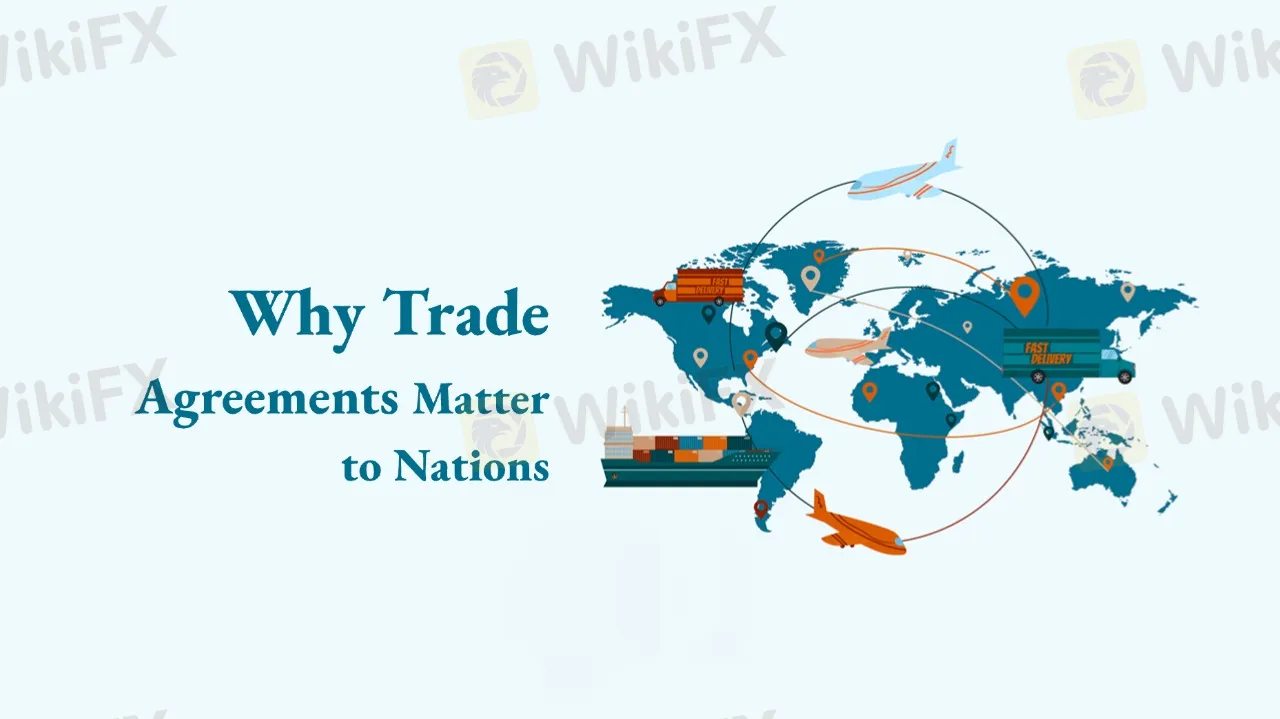简体中文
繁體中文
English
Pусский
日本語
ภาษาไทย
Tiếng Việt
Bahasa Indonesia
Español
हिन्दी
Filippiiniläinen
Français
Deutsch
Português
Türkçe
한국어
العربية
Why Trade Agreements Matter to Nations
Abstract:In today’s interconnected world, trade agreements serve as the foundation for stable and predictable international commerce.

They define critical elements like tariffs, quotas, product origin rules, and intellectual property protections, ensuring that goods and services can move across borders smoothly.
Without these frameworks, global trade would face costly delays, uncertainty, and disputes. Trade agreements allow countries to increase exports, attract foreign investment, and promote employment, making them powerful tools for economic growth.
Real-World Examples Speak Volumes
One notable case is the EU–Japan Economic Partnership Agreement, which offers tariff reductions for businesses on both sides. This has made European products like food, machinery, and vehicles more competitive in Japan, and vice versa.
As a result, bilateral trade volume has grown, while consumers enjoy more diverse and affordable choices. In the Pacific region, some developed nations grant unilateral trade benefits to developing countries, helping them access international markets and boost local economies.
Changes in trade policies can instantly reshape pricing, supply chains, and industry dynamics. A reduction in tariffs might stimulate exports, while new restrictions could hurt company margins.
Markets respond swiftly—stock indexes, exchange rates, and commodity prices often fluctuate based on trade developments. For e-commerce players, trade agreements are especially impactful, as lower landed costs mean better pricing power and broader market access.
Keeping up with trade agreements isnt just for governments; businesses and investors need to track these shifts closely to stay competitive.

Disclaimer:
The views in this article only represent the author's personal views, and do not constitute investment advice on this platform. This platform does not guarantee the accuracy, completeness and timeliness of the information in the article, and will not be liable for any loss caused by the use of or reliance on the information in the article.
Read more

Truth About Markets.com: 5 Hidden Risks Revealed
There are many brokers that offer too many promotions. Have you ever wondered why they do this? This Could be the story of Markets.com. Before you choose Markets.com, read about the hidden risks they never openly talk about.

5 Reasons: Microtrade Is a Red Alert
Is MicroTrade a scam or is it safe? This is a common question for many who are looking to invest or trade. Check out this article and you’ll see it is an investment scam

No License, No Security: CNMV Issues List of 10 Illegal Firms
Spain's financial watchdog, the National Securities Market Commission (Comisión Nacional del Mercado de Valores, CNMV), has issued warnings against 10 unlicensed forex brokers operating without proper authorization.

Manual vs. Automated Forex Trading: Which One Should You Choose?
Both manual and automated forex trading have their strengths and weaknesses. Should you trade manually or use automated systems? Today’s article may give you some clues.
WikiFX Broker
Latest News
MT4 vs MT5: A comprehensive comparison in terms of functionality
Top Forex Trading Strategies for the London Session
Swissquote Takes Full Control of Yuh Digital Finance App in Major Deal
Top 5 Forex Pairs Every Trader Should Have on Their Radar
What WikiFX Found When It Looked Into Decode Global
Treasury yields rise as Trump's new tariff rates in focus
Know the Major Risks of UbitMarkets, Before You Invest!
Trump's tariffs overshadow the pomp and pageantry as Macron meets King Charles
Boeing delivers most airplanes since late 2023 after ramping up 737 Max output
Inflation expectations drift back down to pre-tariff levels, New York Fed survey shows
Currency Calculator


